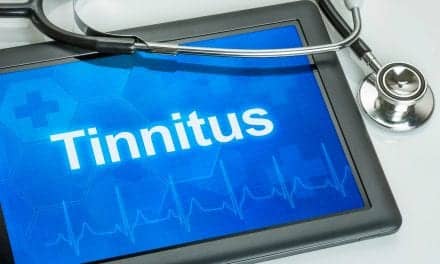US Rep. Bobby L. Rush (D-IL) and US Rep. Cathy McMorris Rodgers (R-WA) introduced the Allied Health Workforce Diversity Act (HR 3637) in the House of Representatives. This legislation would provide grants to increase opportunities for individuals who are from underrepresented backgrounds, including students from racial and ethnic minorities, in the professions of occupational therapy, physical therapy, speech-language pathology, and audiology.

The American Occupational Therapy Association (AOTA), the American Physical Therapy Association (APTA), the American Speech-Language-Hearing Association (ASHA), and the American Academy of Audiology (AAA) announced that they “are thrilled to have committed champions to a more diverse and inclusive workforce, and are working together to help advance this legislation.”
“African-Americans have, for too long, been underrepresented in the health sector, making up less than 5% of physical therapists, occupational therapists, speech-language pathologists, and audiologists,” said Rush. “That is unacceptable, as it is not how America looks. The US Institute of Medicine has found evidence that patients have better health outcomes when the doctor and patient are the same race or ethnicity. I am pleased to work on this legislation to help minority and underrepresented communities to provide pathways to meaningful, high-paying jobs in the health sector and to help expand health professional coverage to communities that need it. By working together, we can make real change for Americans across the country and affirm our commitment to allow everyone the opportunity to achieve the American dream.”
“I’ve seen firsthand the benefits of occupational therapy, speech pathology, audiology, and physical therapy in helping people to live more full and independent lives,” said Rodgers in a statement. “That’s why I’m joining in introducing this bipartisan legislation to encourage a more diverse workforce in these fields. When people from underserved areas go into these fields, they are more likely to serve our rural communities. This bill will help better serve Eastern Washington and the people who rely on these allied health professionals.”
Occupational therapists and occupational therapy assistants help people across the lifespan participate in the things they want and need to do through the therapeutic use of everyday activities (occupations). According to AOTA’s 2015 Salary & Workforce Survey, the percentage of occupational therapy practitioners identifying themselves as African-American or black is 3.1%, and those identifying as Hispanic or Latino is 3.2%. Only 1.4% identify as multiethnic.
“The ability for an occupational therapy client to identify culturally with their occupational therapy practitioner enhances the therapist-client experience,” said Wendy C. Hildenbrand, PhD, MPH, OTR/L, FAOTA, President of the American Occupational Therapy Association (AOTA). “This legislation would provide new professional opportunities for individuals whose backgrounds are currently underrepresented in the occupational therapy workforce. Having a more diverse workforce builds capacity for occupational therapy professionals to better address the health needs of all Americans.”
Of the approximately 336,500 physical therapists and physical therapist assistants currently in the US, only 18.3%, are considered racial or ethnic minorities, which is not reflective of the patients served. APTA is committed to increasing diversity among the physical therapy workforce, which is why it is a central goal of its new strategic plan.
“APTA’s strategic plan calls for us to be an inclusive organization that reflects the diversity of the society the physical therapy profession serves,” said APTA President Sharon Dunn, PT, PhD. “To do so, we must build a diverse profession by ensuring there are opportunities that allow for inclusion of all individuals who want to become physical therapists and physical therapist assistants. This legislation will help to provide those. The population we serve is evolving and becoming ever more diverse. We know that patients who receive care from providers who share their racial and ethnic backgrounds tend to respond better to treatment. That’s one reason this legislation is so important, and we applaud the representatives who have introduced it.”
Just over 8% of ASHA members identify themselves as members of an underrepresented racial group, along with 5.3% who identify their ethnicity as Hispanic or Latino. Additionally, only 6% of ASHA’s audiologists, speech-language pathologists, and support personnel indicate that they meet the ASHA definition of a bilingual service provider.
“Recruiting and sustaining a diverse workforce of audiologists and speech-language pathologists—to best serve the needs of an increasingly diverse population of clients, patients, and students—has long been a priority for ASHA,” said ASHA President Shari Robertson, PhD, CCC-SLP. “Additionally, we know that a more diverse workforce allows us to leverage a broad range of experience, knowledge, and skill for more creative and innovative problem-solving to address the complex issues prevalent in today’s education and health care systems. As our organization celebrates a milestone—the 50th anniversary of ASHA’s Office of Multicultural Affairs—this year, it is especially gratifying to see this legislation introduced. We thank Representatives Rush and Rodgers for their leadership on this important issue.
Representatives from the American Academy of Audiology (AAA) called HR 3637 a win-win.
“Being able to ensure that we’ve made the profession of audiology accessible and inclusive for everyone will strengthen the profession and, hopefully, provide access to hearing health services to a larger population,” said Lisa Christensen, AuD, President of AAA. “The CDC estimates that more than 38 million people in the U.S. have some form of hearing loss and need to see an audiologist. This bill will help to provide greater opportunities for more people to enter our profession. It’s a win for everyone.”
Source: AOTA, APTA, ASHA, AAA
Image: AOTA, APTA, ASHA, AAA





